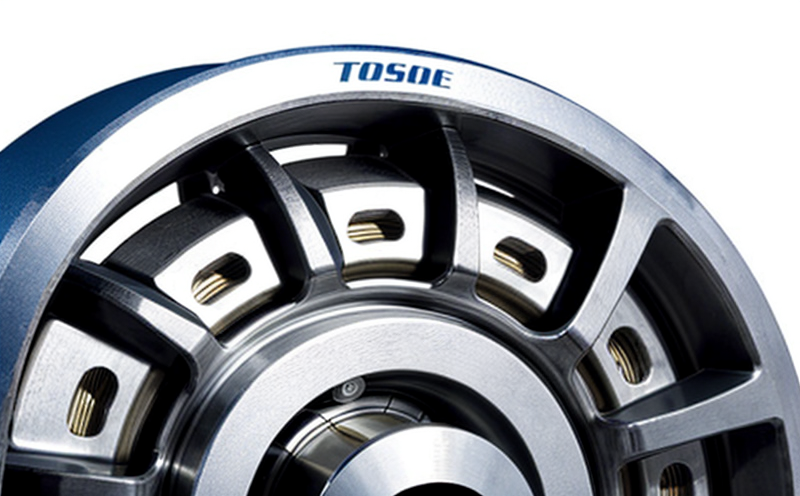Evaluating the effectiveness of design features that distribute tension or torque evenly across products
Evaluating the Effectiveness of Design Features Even Tension Distribution for Unparalleled Product Performance
In todays fast-paced and highly competitive business landscape, manufacturers are constantly seeking ways to optimize their products performance, efficiency, and reliability. One crucial aspect that plays a significant role in achieving these goals is the distribution of tension or torque across products. This critical aspect can make all the difference between a product that excels in its intended application and one that falls short.
At Eurolab, we specialize in providing expert laboratory services to help businesses like yours evaluate the effectiveness of design features that distribute tension or torque evenly across products. Our comprehensive evaluation process ensures that your products are designed with optimal performance in mind, resulting in improved efficiency, reduced costs, and enhanced customer satisfaction.
The Importance of Even Tension Distribution
Even tension distribution is vital for ensuring that products function as intended, whether its a machine component, an automotive part, or an industrial equipment. When design features fail to distribute tension evenly, several issues can arise
Reduced product lifespan Inconsistent tension distribution can lead to premature wear and tear on critical components, reducing the overall lifespan of your product.
Decreased performance Uneven tension distribution can cause products to underperform or malfunction, resulting in reduced efficiency and effectiveness.
Increased maintenance costs When design features fail to distribute tension evenly, repairs and replacements become more frequent, increasing maintenance costs.
The Benefits of Evaluating Design Features with Eurolab
Partnering with Eurolab for evaluating the effectiveness of design features that distribute tension or torque evenly across products offers numerous benefits. Some key advantages include
Improved product performance Our evaluation process ensures that your products are designed to function at optimal levels, resulting in improved efficiency and effectiveness.
Enhanced reliability By identifying and addressing potential issues related to uneven tension distribution, we help you create products that are more reliable and less prone to failure.
Reduced maintenance costs With our expert evaluation, you can minimize the need for repairs and replacements, reducing maintenance costs over time.
Increased customer satisfaction By delivering high-performance products that meet or exceed customer expectations, you can enhance your reputation and build loyalty.
Key Benefits of Our Laboratory Services
Comprehensive evaluation We conduct a thorough analysis of your products design features to identify areas where tension distribution can be improved.
Expertise in materials science Our team has extensive knowledge of various materials and their properties, enabling us to provide informed recommendations for optimal tension distribution.
Cutting-edge testing equipment We utilize state-of-the-art equipment to simulate real-world conditions and accurately assess the performance of your products.
Personalized guidance Our dedicated experts work closely with you to develop customized solutions that meet your specific needs and goals.
QA Frequently Asked Questions About Evaluating Design Features
What types of products can Eurolab evaluate for even tension distribution?
Eurolab provides expert evaluation services for a wide range of products, including machine components, automotive parts, industrial equipment, and more.
How does the evaluation process work?
Our comprehensive evaluation process involves thorough analysis, materials science expertise, cutting-edge testing equipment, and personalized guidance to ensure accurate assessment and informed recommendations.
What are the benefits of partnering with Eurolab for evaluating design features?
By working with Eurolab, you can improve product performance, enhance reliability, reduce maintenance costs, and increase customer satisfaction.
Conclusion
Evaluating the effectiveness of design features that distribute tension or torque evenly across products is a critical aspect of ensuring optimal product performance. At Eurolab, we specialize in providing expert laboratory services to help businesses like yours identify areas for improvement and develop customized solutions for even tension distribution.
By partnering with us, you can enhance your products efficiency, reduce costs, and deliver unparalleled customer satisfaction. Contact us today to learn more about our evaluation process and discover how Eurolab can help your business thrive in the competitive market.
-
Testing the ability of consumer products to withstand twisting or rotational forces without failure
-
Assessing the performance of mechanical components like screws, bolts, and fasteners under tension and torque
-
Evaluating the structural integrity of products that undergo rotational or tensile stress during use
-
Simulating real-world conditions where products are subjected to twisting, pulling, or stretching forces
-
Testing materials for their resistance to deformation when torque or tension is applied
-
Verifying the strength of connections and joints in consumer products like furniture or machinery
-
Assessing the durability of products that need to withstand torque or tension over long periods
-
Testing for potential failure points or weak spots in consumer products exposed to torque or tension
-
Simulating the impact of heavy load or excessive twisting forces on products during use or transport
-
Testing the mechanical limits of consumer products under both static and dynamic tension or torque conditions
-
Verifying the ability of products to maintain their structural integrity under varying force conditions
-
Assessing the long-term performance of products exposed to cyclic or repetitive torque and tension
-
Testing the resistance of fasteners, adhesives, or bonding materials to torque and tension forces
-
Simulating real-life scenarios like tightening, loosening, or pulling motions to evaluate product strength
-
Testing the tension tolerance of fabrics, ropes, and other flexible materials used in consumer products
-
Assessing the strength of critical components like handles, hinges, or levers under torque and tension loads
-
Verifying that products are designed to distribute stresses evenly and avoid concentration of force
-
Testing for the durability of materials like metals, plastics, and composites under torque or tension
-
Evaluating product failure modes caused by excessive torque or tension, such as cracking, bending, or detachment
-
Simulating various stress conditions to ensure the reliability of products under everyday use and extreme conditions




